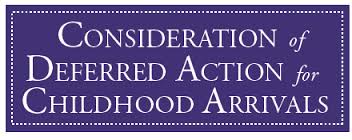Immigration News & Updates eNewsletter
eNewsletter
POSTING DATE: JULY 20, 2015
Learn More About:
This Week's Immigration News
Immigration News & Updates eNewsletter © 2011 - 2015
For questions about U.S. Residency, Green Cards and Immigration Visas, Visit our Website at: www.ImmigrateToday.com or call our office at: (954) 382-5378
Check Out This Cool Stuff For Immigrants....
Immigration
Questions & Answers
Question: Hi I have a quick question. My brother is in Jamaica, but his fiancé just migrated here in November. She was asking me about the fiancé visa and how she could go about helping him with that so he could visit back and forth, until the marriage and she is able to petition for him. I really appreciate your help thank you.
Answer: Only U.S. Citizens can apply for fiancée visas for their foreign fiancées. In your brother's case, his only option is to marry his girlfriend, then have a spousal petition for him in the F2A Immigration category for spouse and minor children of U.S. Residents. It currently takes about 1 1/2 years waiting time for an Immigrant Visa to be available to the spouse of a U.S. Resident, so the sooner they marry and have the case filed, the sooner he can get in the long queue waiting for a visa so he can immigrate to the U.S..
Appeals Court Hearing Held On Obama’s Executive Actions
USCIS Takes Extreme Measures To Retrieve 3 Year Work Permits Mistakenly Issued To DACA Applicants
As part of Texas Federal Court ruling earlier this year putting President Obama’s Executive Actions on hold, a new program to issue DACA holder’s 3 year Employment Authorization Documents (Work Permits) rather than the previous 2 years was stopped as well.
However, apparently, the USCIS mistakenly continued to issue the new 3 year permits in violation of the order. On June 23, 2015 the Texas Federal Judge ordered the USCIS to rectify the situation and retrieve the 3 year work permits from DACA applicants.
The Obama Administration presented its augments to the Court of Appeals in New Orleans on July 10th, in favor of the President’s Executive Actions on Immigration, hoping to persuade the court to lift the “temporary hold” on the Immigration Reform programs, previously issue by a Texas Federal Judge. If implemented, the President’s Executive Actions would give millions of immigrant children (DACA) and parents (DAPA) permission to stay in the U.S. and work legally until Congress passes a permanent comprehensive Immigration Reform law.
Now the wait is on for the court to make its decision, which is expected later this fall. If the court lifts the stay and allows the programs to go forward, Immigration reforms will be implemented throughout the U.S. shortly thereafter.
In an attempt to retrieve the work permits, the USCIS issued letters and made phone calls to DACA status holders, seeking to retrieve the 3 year work permits and issue 2 year work permits instead. However, until recently, the USCIS had still not recovered many of the 2,000 misissued work permits to the courts satisfaction. As a result, on July 7th, 2015, the Federal judge issued an order threatening to find the government in “contempt” for failing to recover or cancel the 3 year work permits, giving the USCIS an August 19 deadline and requiring that Homeland Security Secretary Jeh Johnson and several other top immigration officials appear in court next month to explain why they should not be held in contempt of court.
In order to avoid a contempt charge, beginning July 16, 2015, the USICS has begun extreme measures to recover the misissued 3 year work permits, including:
1) Sending USCIS officer’s to DACA holder’s homes to collect the 3 year work permits and
2) Issuing letters threatening to terminate DACA status unless the 3 year permit is returned to the local USCIS office
To avoid cancellation of status, DACA status holders who have the 3 year work permit should make an INFOPASS appointment at their local USCIS office and offer to surrender the work permit in exchange for a receipt, so that applicants can then request a new 2 year work permit replacement. If an INFOPASS officer refuses to issue a receipt, request to see a Supervisor in order to obtain written proof of return of the card.
Read more:
Should the court decline to rule in Obama’s favor, the Executive Actions on Immigration will remain on hold until either the Supreme Court overrules the Appeals Court decision or the court case filed by the State of Texas works its way through the court system. Stay tuned…
Question: I was approved for my citizenship and my swearing in appointment is scheduled next week. I’d like to know how long it will take for me to receive my naturalization certificate? Once I receive it, can I apply for my American passport any day after that? When am I officially considered as a US citizen? Is there any paperwork that needs to be done after the naturalization day ceremony?
Answer: You will be issued your Naturalization Certificate the same day you are sworn in and you can immediately apply for a passport immediately. You're a citizen from the moment you take the oath. Congratulations! Get more information about what to expect at your Naturalization Swearing-In Ceremony.
Helpful Immigration Tips You Can Use
Affidavits of Support –
What are they and who needs them?
The Affidavits of Support must always be filed by the U.S. citizen or Resident for their immigrating family member(s), even if they do not meet the minimum financial guidelines. In such cases, a Joint-Sponsor who does meet the financial requirements can provide an additional Affidavits of Support and will be bound by the same obligations. Joint-Sponsors must be either a Resident or U.S. Citizen, but are not required to be a family member. The sponsor’s obligation lasts until the immigrant either becomes a U.S. citizen, has earned 40 work quarters credited toward Social Security (about ten years of work), dies, or permanently leaves the United States. If the immigrant has already been living in the U.S. and worked legally, earning work credits before applying for the green card, those count toward the 40.
Minor Children (under age 18) of U.S. Citizens who automatically obtain U.S. Citizen upon being granted Residency are not required to have an Affidavit filed on their behalf, but must file a waiver form instead.
In order to sponsor a family member to immigrate to the U.S. to become a Resident (receive a Green Card), all U.S. citizens and Residents must prove that they have the ability to support their foreign relative financially for a period of years. This is required to show the U.S. government that the family member immigrating is not someone likely to immigrate to the U.S. then go collect government assistance (often called "welfare").
The Affidavit is a legally binding promise by the Sponsor that they will take financial responsibility if the need arises so that their relative will not collect government assistance and if that does occur, the Sponsor will be responsible to reimburse any government agencies from which their immigrant family received financial assistance.
Immigration How To…
How Do I Travel Outside the U.S. While I'm Waiting For My Green Card?
Immigration regulations allow qualifying family members inside the U.S. who have been sponsored by U.S. Citizens and U.S. Residents to file an application to “Adjust Status to Permanent Residency” inside the U.S. and to live and work here legally while waiting to receive a Green Card.
Similarly, certain foreign nationals who are sponsored by a U.S. company, or through Investment or another qualifying Immigrant Visa program to adjust status to Residency inside the U.S.. In such cases, the qualifying immigrant files the form I-485 application along with evidentiary proof of eligibility with the USCIS along with a request for Employment Authorization (often called a Work Permit) and if eligible, a request for Advance Parole (often referred to as a Travel Permit). Both the Work and Travel permits are generally issued within about 90 days.
Immigration regulations allow qualifying family members inside the U.S. who have been sponsored by U.S. Citizens and U.S. Residents to file an application to “Adjust Status to Permanent Residency” inside the U.S. and to live and work here legally while waiting to receive a Green Card.
Similarly, certain foreign nationals who are sponsored by a U.S. company, or through Investment or another qualifying Immigrant Visa program to adjust status to Residency inside the U.S.. In such cases, the qualifying immigrant files the form I-485 application along with evidentiary proof of eligibility with the USCIS along with a request for Employment Authorization (often called a Work Permit) and if eligible, a request for Advance Parole (often referred to as a Travel Permit). Both the Work and Travel permits are generally issued within about 90 days.
Interestingly, once the I-485 adjustment of status application has been filed and accepted by the USCIS, the foreign national is now in the “adjustment of status” process and is not authorized to re-enter the U.S. after travel abroad at any time before receiving U.S. Residency (a Green Card) without the explicit permission of the USCIS through its issuance of an Advance Parole document. This document is not an authorization to leave the U.S. as many immigrant believe, but instead an authorization to be allowed to re-enter the U.S. after foreign travel abroad.
If an immigrant who is in the “adjustment of status” process leaves the U.S. without first applying for an “Advance Parole” document Form I-131, his or her pending application for U.S. Residency will be automatically cancelled. In many cases, applicants can find themselves stranded abroad and unable to re-enter the U.S..
There are a few exceptions to this rule, which include those immigrants who have valid work visas stamped in their passports for an L-1 or H-1B work visa and those for dependants. In such cases, adjustment of status applicants with these passport visa stamps are permitted to re-enter the U.S. using these entry visas and are not required to use an Advance Parole document.
Most importantly, Immigrants who's I-94 cards expired before filing for Adjustment of Status may not be eligible to travel outside the U.S. while waiting for residency and those who do, may not be allowed to re-enter the U.S. and actually be "barred" from re-entering for many years. As a result, Immigrants with expired I-94 cards should always consult with a qualified Immigration Attorney BEFORE applying for a travel permit.
Good to know…










